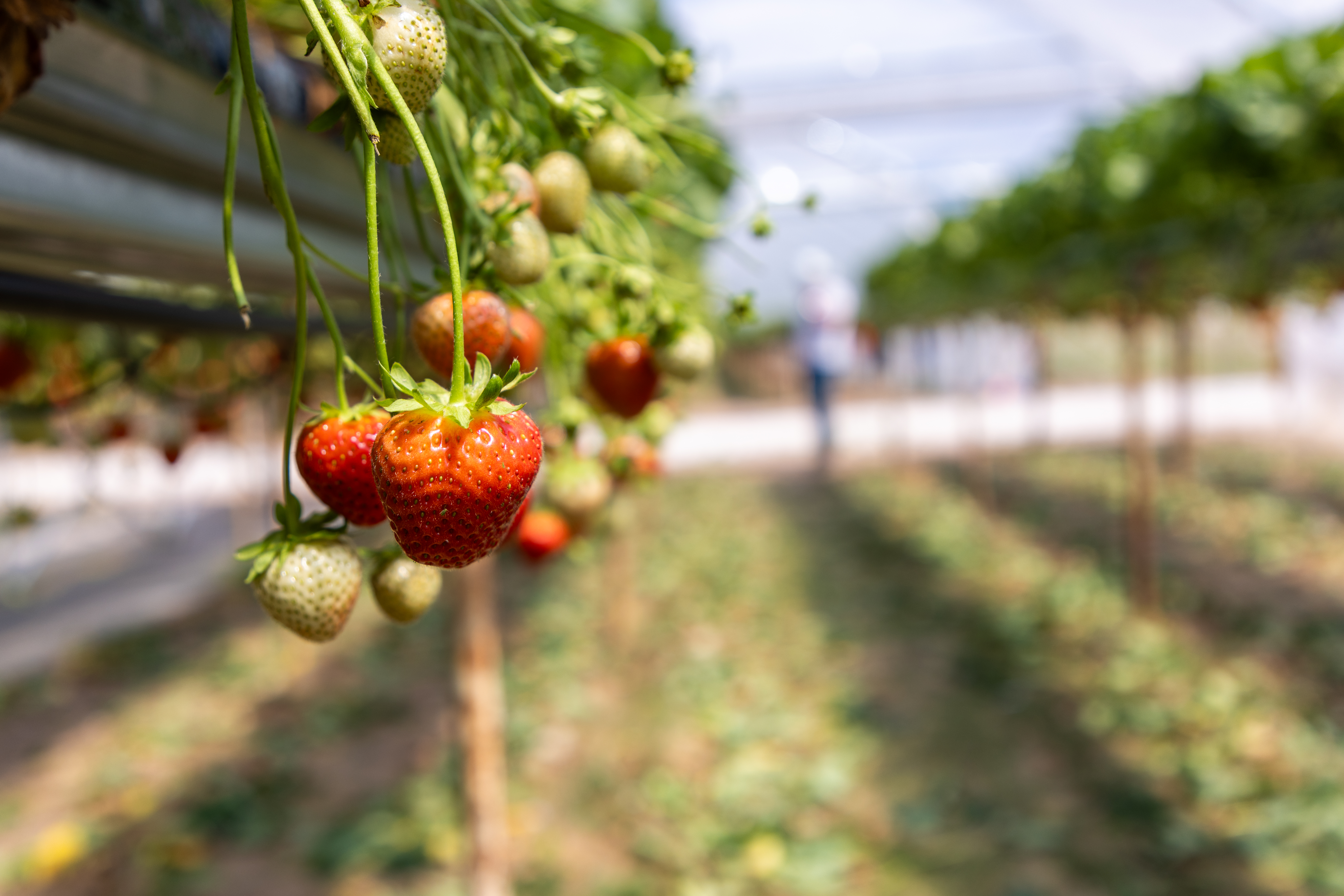
- £1m of funding given to new industry-first innovation projects
- All projects will use new innovation and technology to accelerate scope 3 emissions reductions
- Projects will support the M&S Plan A journey to net zero, as updated Science Based Targets initiative (SBTi) targets validated
Marks & Spencer, the UK’s most trusted brand, has announced new pioneering projects to support its journey to net zero by 2040.
With targets now revalidated by the SBTi, M&S has a clear glidepath to becoming net zero across the entire supply chain by 2040. The biggest challenge in achieving these targets - a full ten years earlier that the Governments UK-wide strategy – is in the supply chain, where 95% of emissions sit. To meet these targets, M&S created the Plan A Accelerator Fund to find innovative lower carbon solutions through partnerships within the M&S supply chain.
This year, M&S is funding key projects looking at innovative ways to reduce emissions from agriculture.
One trial already underway aims to deliver bigger, better British strawberries – a customer favourite and one of the products M&S Food is famous for. Innovative varieties such as M&S King, White Pearl and Red Diamond strawberries have launched in recent seasons and more recently the M&S Strawberries & Crème sandwich has become a viral sensation. But there is a secret behind M&S’s strawberry success – combining AI technology with bumble bees.
Behind the scenes, M&S has been working with a small group of growers to trial precision pollination. It’s an innovative farming technique that monitors and enhances pollinator activity to deliver more fruit and higher quality berries whilst improving biodiversity. Using smart listening technology to monitor bumblebee activity in real time, four farms have been able to take targeted nature-friendly action to support pollination in areas where levels are lower. This could include introducing more bees, changing the location of bee boxes or adding additional plants to naturally attract pollinators to specific areas. The four farms trialling this technique have seen bee activity almost double, which in these early stages has shown to improve consistency - meaning an even spread of strawberries across the trial area. This could mean the action has delivered more strawberries or a more consistent size of strawberry. Further data will be tracked throughout the season to fully understand the impact and benefit of the trial.
Another M&S Food project, funded by the Plan A Accelerator Fund, is looking to trial a circular approach to finding improved uses for waste from agriculture, by using high-quality biochar on chicken farms. Biochar is a unique charcoal-like product made by heating natural materials from plants in low levels of oxygen – a process which locks away the carbon. The ‘ChickenChar’ trial will mix a high-quality biochar into the bedding material in M&S chicken sheds to reduce ammonia emissions in housing and potentially improve retention of phosphates from chicken manure. Lower ammonia emissions help keep the bedding drier, which enhances the environment and promotes better animal welfare. By retaining the nutrients in chicken manure – an effective organic fertiliser – ‘ChickenChar’ could also help limit pollution, particularly by preventing run off into rivers, for example. Additionally, it may improve the effectiveness of organic fertilisers, by slowly releasing nutrients into the soil, reducing negative impacts of run-off into rivers, while simultaneously supporting crop growth and removing carbon from the atmosphere.
Victoria McKenzie-Gould, Corporate Affairs and ESG Director at M&S, commented: “M&S’s success as an own-brand retailer is borne from deep relationships with our supplier partners which supports a long-term approach to investment in innovation and quality, and a shared belief in the value of doing the right thing. This same approach is helping us to become a Net Zero business by 2040 through our annual £1m Plan A Accelerator Fund with which we fund new and small-scale or untested solutions in collaboration with our supply base.”
Further projects will look at:
- Livestock: Measuring the methane output of progeny Aberdeen Angus cows to understand genetic links and how breeding selection could reduce this
- Agriculture: Growing Net Zero wheat for potential use in animal feed and bakery products
- Technology: Trialling new technology to drive energy efficiency in stores
Previous funding has seen M&S support various projects including trialling new technology to make fridges in stores more efficient. The Fashion, Home & Beauty team also launched a clothing repair service, in partnership with industry leading repair expert Sojo. M&S Food created its first autonomously farmed field, supporting farmers to trial the latest robot and drone technology to farm parsnips with a lower carbon impact. Another project invested into recycling, with M&S becoming the first retailer to partner with Polytag – a technology which can track plastic packaging to recycling plants across the UK to deliver better data and insight which launches on milk in the next few weeks.
For more information on M&S’ progress on Plan A, please visit: Marks and Spencer Group plc ESG Report 2025
- ENDS -
For further information, please contact:
M&S Corporate Press Office: +44 (0)20 8718 1919
2025 Sustainability Corporate